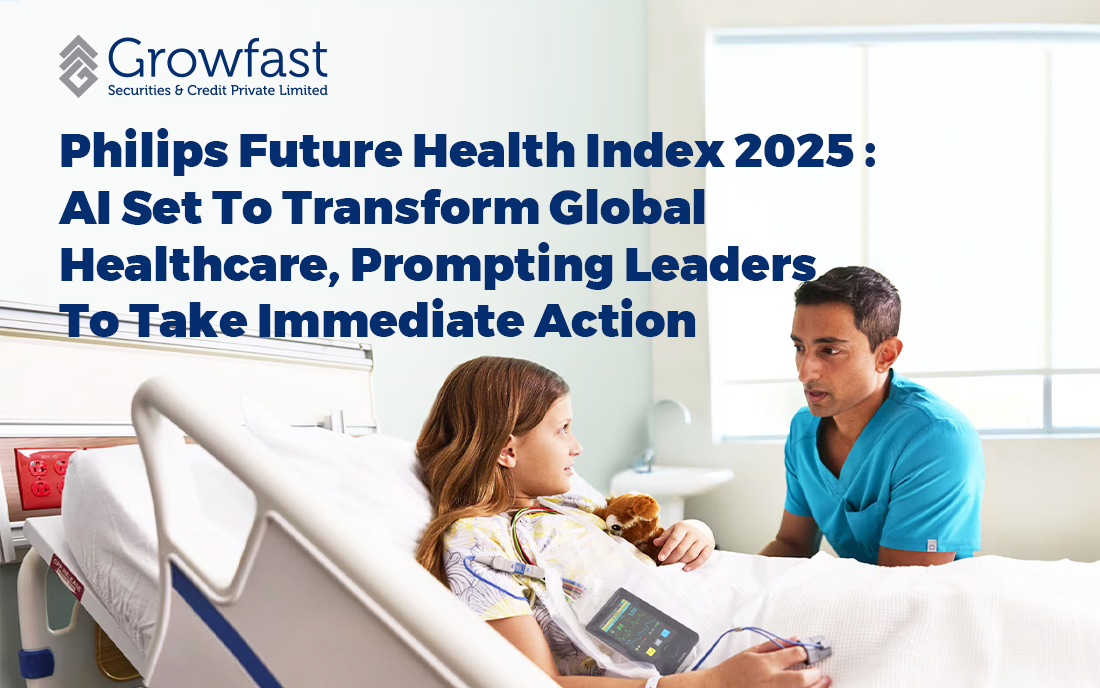
Royal Philips (NYSE: PHG, AEX: PHIA), a global leader in health technology, has unveiled its 10th annual Future Health Index 2025 report, revealing mounting pressures on healthcare systems worldwide—and positioning artificial intelligence (AI) as the pivotal solution. Against this backdrop, Philips share price has seen renewed investor interest, with the Philips stock price edging higher on optimism about its AI-driven health portfolio.
AI: A Healthcare Game-Changer
The FHI 2025 Report—the largest global survey of healthcare professionals and patients—finds that AI promises to revolutionize care delivery but warns that trust gaps could stall progress. “The need to transform healthcare delivery has never been more urgent,” said Dr. Carla Goulart Peron, Philips’ Chief Medical Officer. In over half of the 16 countries surveyed, patients wait nearly two months for specialist appointments; in Canada and Spain, waits reach four months or more.
Critical Delays and Rising Risks
- Delayed Care: 33% of patients report worsening health due to long waits; more than one in four are hospitalized before seeing a doctor.
- Cardiac Backlog: 31% of cardiac patients are admitted before specialist consultation—a statistic that underscores a looming shortfall of 11 million health workers by 2030.
“Unchecked, these delays will strain health systems and inflate costs,” warned Dr. Peron.
Clinician Burnout Fuels Demand for Digital Relief
Over 75% of healthcare professionals lose precious clinical time—one-third lose more than 45 minutes per shift—wrestling with incomplete or inaccessible data. Those lost minutes add up to 23 full days per professional each year. “These inefficiencies amplify stress and contribute to burnout,” said Gretchen Brown, RN, VP and Chief Nursing Information Officer at Stanford Health Care.
Trust: The Missing Link to Widespread AI Adoption
Despite clinicians’ optimism—69% are involved in AI development—only 38% believe current tools meet real-world needs. Patients lag even further: 34% fewer patients than clinicians trust AI’s benefits, especially among those aged 45 and older. Accountability remains unclear, with over 75% of respondents uncertain who is liable for AI-driven errors. Data bias also poses a risk of deepening health disparities.
“To build trust, we need transparency, rigorous validation, and clinician involvement at every stage,” Brown added.
Market Reaction and Analyst Insight
Philips’ commitment to AI innovation has caught the eye of investors and analysts alike. GrowFast Securities and Credit Pvt Ltd highlights that the Philips stock price reacted positively on report day, reflecting confidence in Philips’ strategic pivot toward AI-enabled solutions. Analysts at GrowFast note that sustained investment in AI could “unlock significant value, boosting both top-line growth and shareholder returns.”
The Path Forward: Human-Centric AI
Patients and providers agree that AI must be safe, effective, and equitable. Clear legal and ethical frameworks, strong scientific validation, and continuous oversight will be key to accelerating adoption. “By 2030, AI could double patient capacity by automating administrative tasks and learning alongside clinicians,” said Shez Partovi, Chief Innovation Officer at Philips. “But success hinges on designing AI with people at the center—ensuring safety, fairness, and representation.”
About the Future Health Index 2025
The Future Health Index is the world’s largest annual survey of healthcare professionals and patients, exploring how technologies—especially AI—can empower providers to deliver better care to more people.
About Royal Philips
Headquartered in the Netherlands, Royal Philips (NYSE: PHG, AEX: PHIA) is a leading health technology company with 2024 sales of EUR 18 billion and approximately 67,200 employees. Philips specializes in diagnostic imaging, ultrasound, image-guided therapy, monitoring and enterprise informatics, and personal health solutions.


